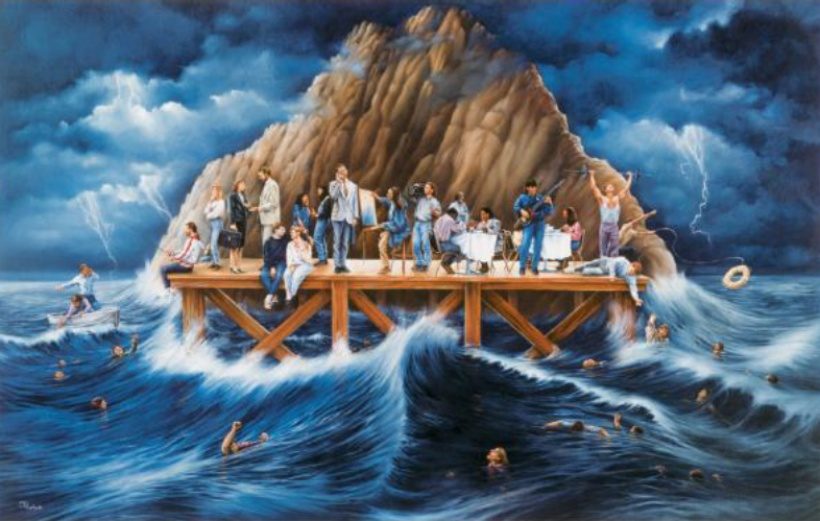A few weeks ago, I pulled out a bit of history. And this bit pulled back.
It happened one day during our annual missionary candidates’ Briefing Course, held every summer during the month of June. I was leading a Bible Study on the theme of commitment. To illustrate the theme, I pulled out a wonderful testimony from the history of Christian missions. It came from the life of William Booth, the founder of The Salvation Army and one of my personal heroes.
William Booth (1829-1912) described a vision that filled his heart as a young man and spurred him onward. It came to him while traveling by train through the English countryside, from one preaching point to another. “As I gazed from the coach window,” Booth reported, “I was led into a train of thought concerning the condition of the multitudes around me.” And what a condition it was.
Booth saw a great, heaving ocean that extended to the horizon in every direction. In its waves he saw “myriads of poor human beings” struggling as they could to stay afloat, splashing about, and eventually, here and there, sinking away. These were the masses of humanity, drowning away in sin.
He saw as well a great rock in the middle of the waves, rising beyond the clouds. He saw built around the rock an oaken wharf, anchored securely into the rock and immovable against the waves. On the wharf, Booth saw again the forms of human beings. The rock, he knew, represented Calvary. The wharf was the church. And the people upon it were the sisters and brothers who had found new life in the gospel of grace, every one of them rescued from the crashing waves.
Booth was amazed with the variety of activities he saw upon the wharf: the sisters and brothers were busy about very, very many things. Some were holding theological conversations, wondering how long God’s people must endure the wharf before they are permitted to the safety of the mainland. Others were having Bible studies and hymn sings. Others were napping, or reading, or even gardening a little – or simply “dressing up… and walking about,” and so on. Yet all the while the waves were crashing, just over the wharf’s edge – and the cries of the drowning could be heard in every direction.
Very few seemed to notice the cries or to care at all that people were drowning: this is what amazed William Booth especially. The sisters and the brothers on the wharf had been rescued from the waves themselves, every one of them – but they seemed to have forgotten. “And so the multitude went on right before them struggling and shrieking and drowning in the darkness.”
Booth noticed that some of the sisters and brothers were praying, too. Most of all, they seemed to pray that the Lord of the place would come to them and make them happier. But the Lord had already arrived: he was himself down at the edge and in the waves, struggling to save whoever was willing.
Some of the sisters and brothers went down to the edge to lend a hand. They were “industriously working and scheming,” Booth reported, “by ladders, ropes, boats and other means more effective, to deliver the poor strugglers out of the sea. Here and there were some who actually jumped into the water, regardless of the consequences….” These were “the true soldiers of the cross of Jesus.” But they were only a few.
Once you pull it out, this kind of vision pulls back: it certainly did for William Booth. The vision transformed his life. This is a vision about priorities: it pulls your priorities out of their normal sockets. It is a vision about commitment: it pulls your heart toward surrender. This is a vision about the perishing, of course, and about redemption, too. If you soak it in for just a little, it is a vision that will make you ache and make you sigh for joy. Visions are like that, sometimes.
The vision of William Booth concludes with an exhortation: he asks us to jump. Jesus is already in the sea, struggling to rescue the perishing; will we join Him? “With the light that is now broken in upon your mind and the call that is now sounding in your ears, and the beckoning hands that are now before your eyes,” Booth explains, “you have no alternative.”
You can almost smell the salt in the air. This kind of vision pulls you, if you let it, right to the edge.
